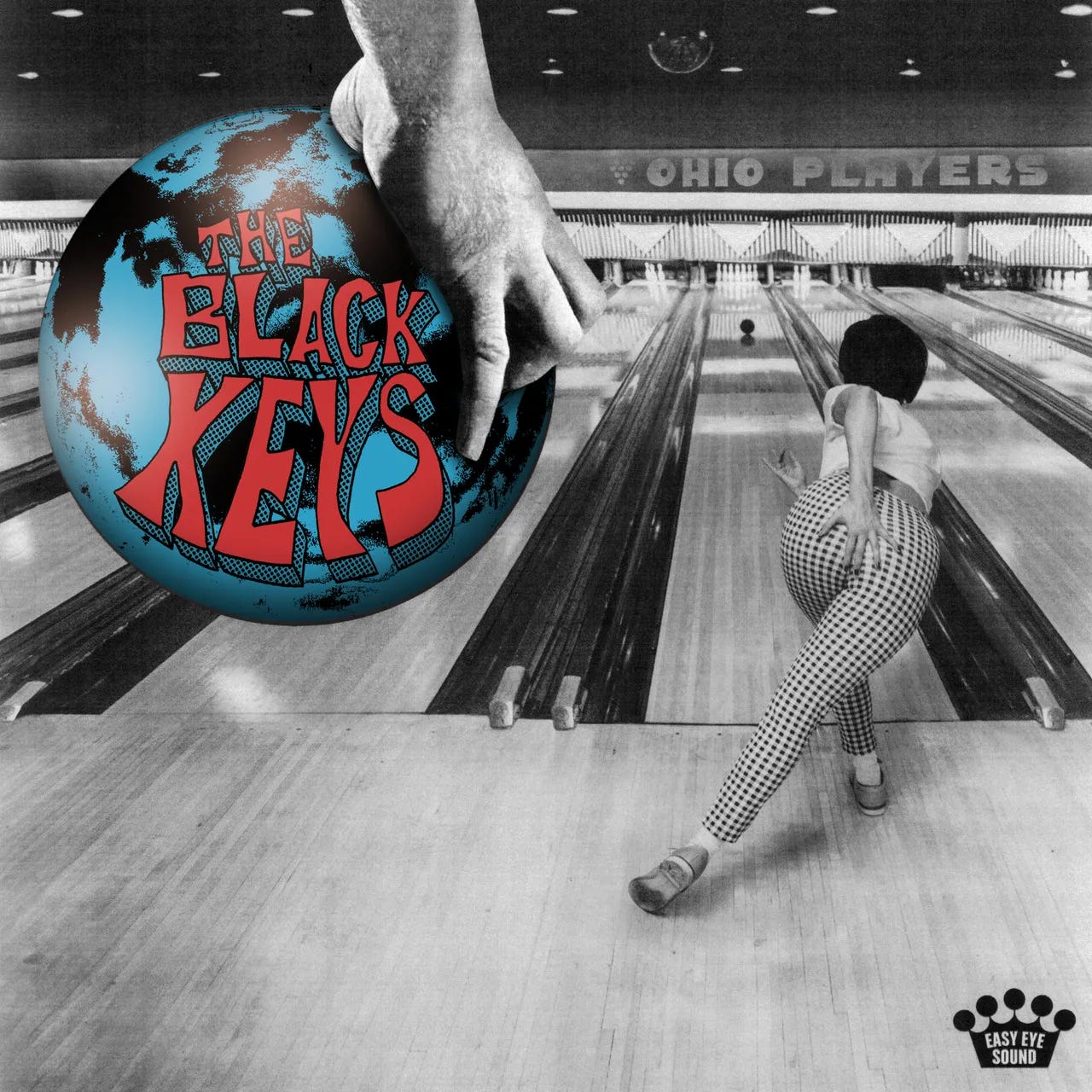Unlike much of America, I actually had the opportunity to see the Black Keys perform live in 2024.
My chance arrived in the middle of a South By Southwest where the Black Keys and their associates were omnipresent. The duo of Dan Auerbach and Patrick Carney unveiled a feature-length documentary called This is a Film About the Black Keys, gave a keynote address and headlined two showcases, each filled with acts from Easy Eye Sound, the label headed by Auerbach. All of this was clearly designed as a show of strength leading up to the release of Ohio Players, a new album intended to put the Black Keys back on the charts and back on the road.
None of those plans panned out. Ohio Players became the band's first album in 18 years to not crack Billboard's Top 20, coming in at 26 upon its April 2024 release; it's currently nowhere to be found on the Top 200. This Is A Film About The Black Keys has yet to find a distributor. Most embarrassingly, the band wound up canceling their scheduled tour of North America's arenas, an event that prompted them to sever ties with managers Irving Azoff and Steve Moir.
The Black Keys attempted to give this a positive spin, claiming they're focusing on a "similarly exciting, intimate experience for both fan and the band"—elegant shorthand for the fact that they're now forced to play much smaller venues. Some of this downscaling could very well be due to the live market correcting itself after a post-pandemic boom period. Even so, there's no disguising the fact that downscaling to theaters is humiliating for a band that's called arenas home for over a decade.
What fascinates me about this whole mess is the abruptness of the Black Keys's diminished status. It's as if the culture collectively decided to leave the band behind. That abandonment is all the more interesting to me because, from my perspective, the Black Keys aren't in artistic decline. The group sounded assured at a blues-heavy SXSW set at the Mohawk and I found Ohio Players "lively, fresh and colorful," to quote the excerpt from my Pitchfork review that's cited on Wiki. Certainly, there have been points in the past where the Black Keys have seemed adrift to my ears. Their initial records for Nonesuch were awash in a hash haze and the duo seemed lost on the large Austin City Limits Festival stage in 2010. That's not the case in 2024. The band has whittled away their excesses and plays with a sense of professionalism that's reliable even when it's not exciting.
I don't think the downturn in affection for the Black Keys is tied to their artistic output as much as the group finally catching up to their inevitable destiny. Young upstart revivalists are bound to evolve into the standard bearers for the tradition they've sought to uphold. The energy level decreases, stylistic quirks smooth into sonic signatures, inspiration turns into craft. To their credit, the Black Keys do seem aware of this conundrum. Ohio Players suggests the group understood they needed to spruce up the monochromatic shuffle of the amiable Dropout Boogie yet the new blood they've enlisted are even older than the band: Beck and Noel Gallagher, '90s alt-rock veterans who also have seen a slowdown in their sales, plus Dan the Automator, yet another musician who emerged thirty years ago.
The Black Keys are younger than their collaborators but they're still getting a little long in the tooth. This year sees the twentieth anniversary of Rubber Factory, the kinetic garage-blues album that earned their ticket to the major leagues, a record that arrived smack dab in the middle of the retro-rock explosion of the early 2000s. Sure, the Black Keys were reminiscent of the White Stripes—a similarity that sparked a feud that's long since cooled—but guitar bands littered the landscape in the early days of the 21st Century. Along with Jack White, the Black Keys are one of the few survivors of that era who maintained an audience, possibly because they wound up having their commercial breakthrough arrive much later: when Brothers and El Camino became platinum hits, they had roughly a decade's worth of road under their belts. They weren't part of a scene but the last rock band standing, living proof that there still was an audience for rock rooted in blues and R&B.
That assessment may still be true in 2024 but there's an essential caveat: that audience is much smaller than it was even ten years ago. Some of that is due to the classic rock era receding into the history books, some of it is due to the Black Keys settling into middle age. They're familiar commodities that carry no sense of romance; they're merely a working band. The wear and tear they bear aren't battle scars, it's heavy mileage. At some point, the vehicle is bound to slow down.

